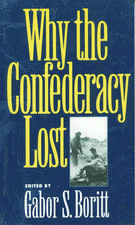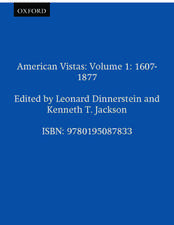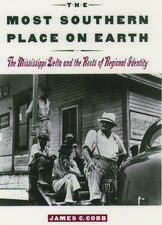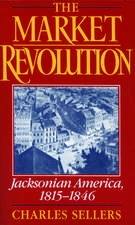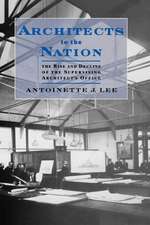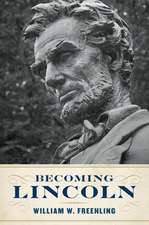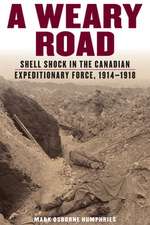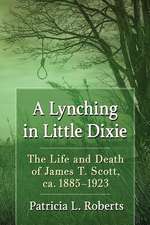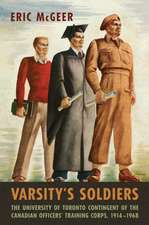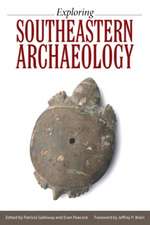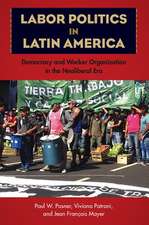Roosevelt's Second ACT: The Election of 1940 and the Politics of War
Autor Richard Moe Allan Robertsonen Limba Engleză CD-Audio – 20 iun 2016
Vezi toate premiile Carte premiată
"In Roosevelt's Second Act Richard Moe has shown in superb fashion that what might seem to have been an inevitable decision of comparatively little interest was far from it." --David McCullough
On August 31, 1939, nearing the end of his second and presumably final term in office, President Franklin Delano Roosevelt was working in the Oval Office and contemplating construction of his presidential library and planning retirement. The next day German tanks had crossed the Polish border; Britain and France had declared war. Overnight the world had changed, and FDR found himself being forced to consider a dramatically different set of circumstances. In Roosevelt's Second Act, Richard Moe focuses on a turning point in American political history: FDR's decision to seek a third term. Often overlooked between the passage and implementation of the New Deal and the bombing of Pearl Harbor, that decision was far from inevitable. As the election loomed, he refused to comment, confiding in no one, scrambling the politics of his own party; but after the Republicans surprisingly nominated Wendell Willkie in July 1940, FDR became convinced that no other Democrat could both maintain the legitimacy of the New Deal and mobilize the nation for war. With Hitler on the verge of conquering Europe, Roosevelt, still hedging, began to maneuver his way to the center of the political stage. Moe offers a brilliant depiction of the duality that was FDR: The bold, perceptive, prescient and moral statesman who set lofty and principled goals, and the sometimes cautious, ambitious, arrogant and manipulative politician in pursuit of them. Immersive, insightful and written with an inside understanding of the presidency, this book challenges and illuminates our understanding of FDR and this pivotal moment in American history.
| Toate formatele și edițiile | Preț | Express |
|---|---|---|
| Paperback (1) | 125.72 lei 31-37 zile | |
| Oxford University Press – 9 sep 2015 | 125.72 lei 31-37 zile | |
| Hardback (1) | 184.05 lei 31-37 zile | |
| Oxford University Press – 2 oct 2013 | 184.05 lei 31-37 zile |
Preț: 54.90 lei
Nou
9.27€ • 9.78$ • 7.75£
Indisponibil temporar
Specificații
Descriere
Winner of the 2013 PROSE Award, U.S. History category"In Roosevelt's Second Act Richard Moe has shown in superb fashion that what might seem to have been an inevitable decision of comparatively little interest was far from it."--David McCulloughOn August 31, 1939, nearing the end of his second and presumably final term in office, President Franklin Delano Roosevelt was working in the Oval Office and contemplating construction of his presidential library and planning retirement. The next day German tanks had crossed the Polish border; Britain and France had declared war. Overnight the world had changed, and FDR found himself being forced to consider a dramatically different set of circumstances. In Roosevelt's Second Act, Richard Moe focuses on a turning point in American political history: FDR's decision to seek a third term. Often overlooked between the passage and implementation of the New Deal and the bombing of Pearl Harbor, that decision was far from inevitable. As the election loomed, he refused to comment, confiding in no one, scrambling the politics of his own party; but after the Republicans surprisingly nominated Wendell Willkie in July 1940, FDR became convinced that no other Democrat could both maintain the legitimacy of the New Deal and mobilize the nation for war. With Hitler on the verge of conquering Europe, Roosevelt, still hedging, began to maneuver his way to the center of the political stage.Moe offers a brilliant depiction of the duality that was FDR: the bold, perceptive, prescient and moral statesman who set lofty and principled goals, and the sometimes cautious, ambitious, arrogant and manipulative politician in pursuit of them. Immersive, insightful and written with an inside understanding of the presidency, this book challenges and illuminates our understanding of FDR and this pivotal moment in American history.
Recenzii
Richard Moe's excellent book reminds us of what great leadership looks like. His beautifully written account of FDR's run for a third term and America's decisive move toward involvement in World War II will stand as the definitive study of this landmark election and a turning point in the country's history."
Trying to understand and explain the complexities of Franklin D. Roosevelt's mind is a daunting task for any historian. Richard Moe is clearly up to the challenge in his fascinating, revelatory account of FDR's fateful decision to run for a third term in 1940, in the midst of the greatest crisis the world has ever faced. Filled with drama and excitement, Roosevelt's Second Act is particularly compelling in its depiction of how two women
A carefully focused and researched analysis that adds considerably to the historical record.
Roosevelt's Second Act tells the story of a weary president's fateful decision to heed the call of duty in our nation's
Most accounts of the Age of Franklin Delano Roosevelt halt with the erosion of the New Deal in 1938 and then lurch forward after Pearl Harbor in 1941. One moment the reader is immersed in Harry Hopkins, the next in Winston Churchill three years later. In this lively, fast-paced tale of the 1940 campaign when FDR sought to break the taboo against serving more than two terms, Richard Moe invites his readers to reflect on a seminal year when the two periods merged. That year, he shows lucidly, America crossed the divide from isolation to irrevocable international commitment, and magnified the authority of the president, then and ever more, in his new role as commander-in-chief of the most powerful empire on earth.
"[Roosevelt's Second Act] tells us as much about the American system of politics as any book I've ever read . . . [a] masterful account of why and how FDR overcame his reluctance to seek reelection. "
[A] compelling read. Roosevelt's Second Act: The Election of 1940 and the Politics of War is a superbly reconstructed chronology of the 1940 campaign.
Notă biografică
Premii
- PROSE Winner, 2013

